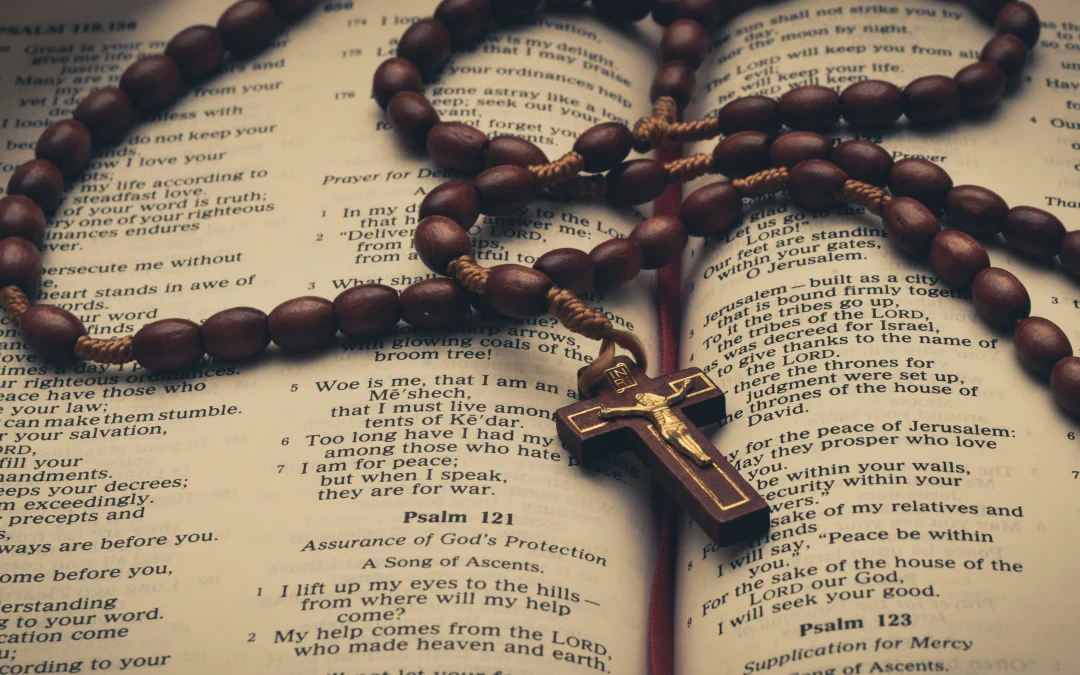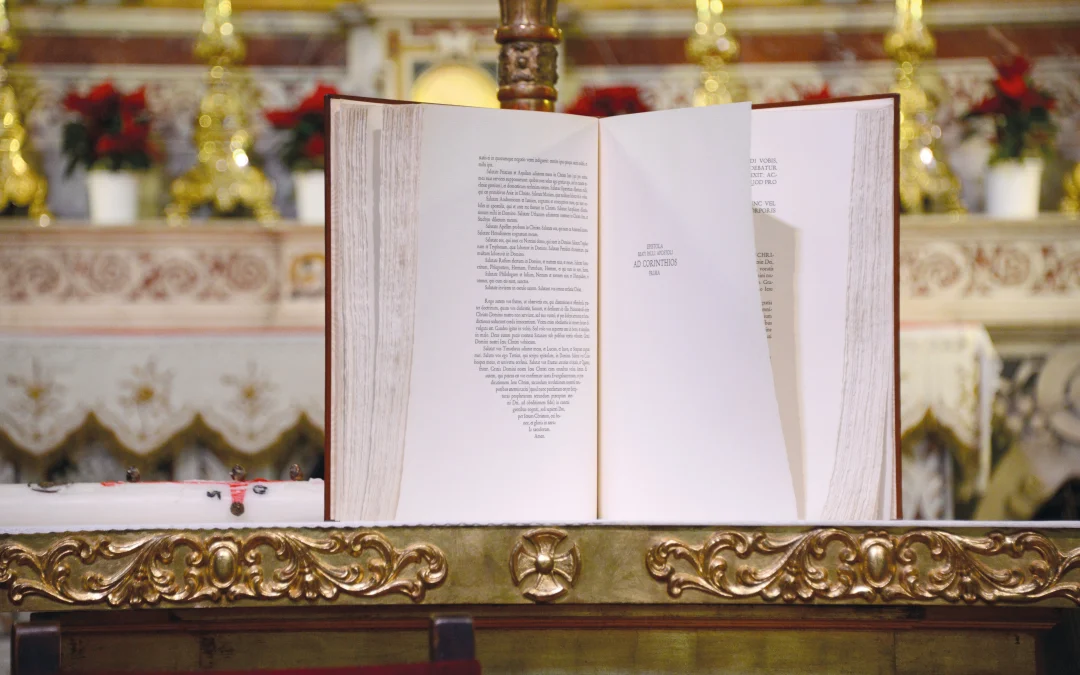Although we knew the day was coming, we could never truly prepare for the pain we felt when it finally arrived.
Four months earlier, a neighbor noticed that Scout, our ten-year-old golden retriever, was walking with a slight limp. My wife soon felt a lump on his right front leg. Our family—especially our two teenage sons—were terrified.
A week and two veterinary appointments later, we learned that our worst fears had come true. He suffered from bone cancer, and he only had a few months left.
Two days after Christmas—almost four months after his diagnosis—I opened the front door to let Scout do his business. At the same time, a teenage neighbor was walking two dogs toward our house.
Scout, ever the effervescently friendly neighbor, wanted to say hi to his canine buddies. Ignoring the pain caused by the baseball-sized tumor on his leg, he took off. Dashing toward the dog-walker and his leashed companions in one final attempt to show cancer who was in charge, he found out the hard way that he couldn’t win.
With a stream of ear-piercing howls, he alerted us that his fragile leg had finally snapped. Tears raced down our faces as we raced to comfort him in his last hour of life. Tears that flowed freely not only because we were witnessing his suffering, but also because we thought we’d never see him again.
Contrary to the Disney movie, I’d always been taught that dogs, and other pets, don’t go to Heaven. But as I contemplated eternity without him, I wondered whether what I’d learned had any basis.
Since Scripture didn’t seem to tackle the issue head-on, I first considered what the Magisterium has said.
Although not official doctrine, several popes have weighed in with their thoughts.
Papal Perspectives On Pets In Heaven
Pope Paul VI once told a boy, “One day we will again see our animals in the eternity of Christ.”
I’m not sure we can be certain he was espousing his deep-seated belief rather than merely attempting to comfort a child who was grieving the loss of his pet.
After all, if my child lost a pet, I’d likely tell them they’d see them again in Heaven.
But I think there’s another lens through which we can view Paul VI’s statement.
“God sees everything in one eternal now. God is timeless.” He’s not bound by time like us, but instead lives in eternity. Perhaps when we’re able to share His eternal view, we’ll still somehow be able to see the pets we’ve lost. Maybe it’ll be as though we’ve never lost them!
Papal views vary, however.
There’s a difference between having a soul and consciousness, however.
In order to live, all humans and animals must have souls. It’s only logical. Catholic Answers agrees.
However, human souls are rational and understand morality, as opposed to animal souls. And animal souls, unlike human souls, “cease to exist at death.”
Pope Benedict, in a 2008 sermon, agrees. He said “when an animal dies, it ‘just means the end of existence on earth.’”
He also said they “are not called to eternal life.”
Pope Francis, on the other hand, wrote the following in Laudato Si’:
“Eternal life will be a shared experience of awe, in which each creature, resplendently transfigured, will take its rightful place and have something to give those poor men and women who will have been liberated once and for all.”
Our cats, dogs, gerbils, and every other animal that resides in our homes certainly qualify as God’s creatures, so Francis sounds on board with the pets in Heaven perspective.
“One principle is that all living things have a soul. Here soul is defined as what makes an organic body live. Now when any living thing dies, its soul is separated from its body. In the case of plants and animals the soul goes out of existence. But in the case of man, the soul remains in existence because it is a spiritual or immaterial thing. Consequently, it differs from the souls of animals in two important respects. First, it is the seat of intelligence or reason. For this reason, a man is held responsible for his actions in a way that animals are not. Secondly, the soul is immortal.”
Dr. Richard Geraghty
St. Francis Loved Animals
While Saint Francis of Assisi may not have explicitly stated that animals have a place in Heaven, his life and work give clues to his perspective.
His dedication and respect for all animals make his actions particularly pertinent.
Once, when he came upon a large flock of birds that didn’t flee at his arrival, Francis was amazed. He then preached to them by beginning with these words:
“My brother and sister birds, you should praise your Creator and always love Him: He gave you feathers for clothes, wings to fly,and all other things that you need.”
While Francis likely didn’t believe the birds understood every word he said, they somehow intuited his message, for:
“At this, the birds began to spread their wings, stretch their necks, and gaze at Francis, rejoicing and praising God in a wonderful way according to their nature.”
If animals are able to praise God, even if their way of doing so is completely different than ours, perhaps God sees them as more than temporal creations.
Maybe he wants every creation to be saved.
Perhaps there’s a good reason why.
Pets Reflect God’s Glory
Whenever I watch majestic blue jays pecking at the seed from my backyard feeder, see bass splash around in the local lake, or stare into the piercing eyes of our puppy, Casey, I see a reflection of God’s glory.
These creatures weren’t put here accidentally or by chance. Instead, their intricacy and beauty remind us daily of the power and creativity of their designer. I think they recognize His Majesty, too.
St. John’s vision confirms it.
“Then I heard every creature in Heaven and on earth and under the earth and in the sea, and all that is in them, singing,
‘To the one seated on the throne and to the Lamb
be blessing and honor and glory and might
forever and ever!’” (Revelation 5:13)
The heavenly chorus wasn’t composed of only humans and angels. Instead, every creature was praising God the Father and Jesus, the Lamb! Every single creature!
Including our beloved pets!
So, Do All Dogs Go to Heaven?
Since all creatures will know and worship God, how could God possibly destine them for eternal nothingness?
And if God gave birds—and other animals—the supernatural ability to listen to St. Francis’ preaching, how could He abandon them?
I’m neither a theologian nor a priest, but I believe the evidence appears to point to an eternal purpose and potential eternal life for our pets—even though some popes and Catholic scholars disagree.
Regardless, I think we must consider another, more certain perspective.
When we go to Heaven, our memories won’t be wiped clean. We’ll still recall our lives on earth, and as most pet owners will attest, our pets often play a prominent role in them.
Therefore, even if we don’t see Spot or Princess or Scout in Heaven, we’ll still see them in our hearts throughout eternity. In that way, we can be sure that all dogs, cats, rabbits, snakes, and whatever pets are part of our families will be in Heaven with us…forever.
More Resources On Pets In Heaven
Will My Pet Be In Heaven? Fr. Mike Schmitz
Will Our Pets and Other Animals Be in Heaven? – Ask a Marian
Image: Photo by Jairo Alzate on Unsplash












